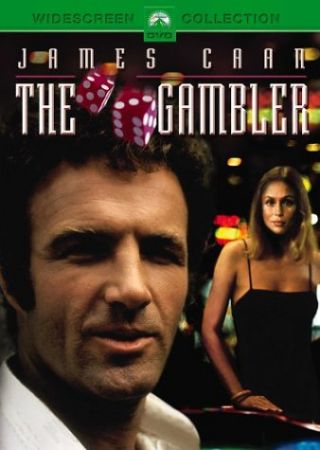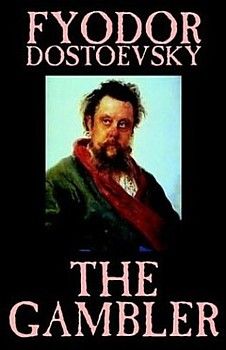Compulsive Behaviors
Gambling A-flick-tion
A brief look at pathological gambling in the movies
Posted September 19, 2013

Clive Owen in 'Croupier'
The media undoubtedly has a large impact on how we perceive the world in which we live, especially on matters we know little or nothing about. Pathological gambling is one social concern that has been portrayed by a number of movie-makers around the world, although the depth to which each film explores the issue differs greatly. The world of gambling and gamblers has been portrayed in many films and in many different ways throughout the years (e.g., The Sting, The Cincinnati Kid, Casino, Owning Mahoney, Rain Man, Rounders, 21, Croupier, The Cooler). However, I argued over 20 years ago in a 1989 issue of the Journal of Gambling Behavior that many of these film representations tend to cast gambling in an innocuous light, and often portray gamblers, largely male, as hero figures.
One film that has dealt entirely with the downside of gambling is The Gambler (1974; directed by Karel Reisz), and starring James Caan in the lead role as Professor Alex Freed, a university lecturer in literature and a compulsive gambler. The film is probably the most in-depth fictional film about the life of a pathological gambler. Back in 2004, I published an academic paper in the International Journal of Mental Health and Addiction on this film and assessed the extent to which the film accurately portrayed the 'typical' pathological gambler by using the diagnostic criteria for pathological gambling in three editions of the American Psychiatric Association’s Diagnostic and Statistical Manual of Mental Disorders. I concluded that the film accurately portrayed most of the criteria in the DSM-III, the DSM-III-R, and the DSM-IV (obviously the new DSM-V post-dates my 2004 paper). In addition, I also examined other parts of the film’s text and scenarios to examine the film’s theoretical perspective and its relevance to contemporary representations of pathological gambling.

James Caan in 'The Gambler'
The start of the film sees Freed go into $44,000 debt after gambling and losing at blackjack, craps and roulette in a casino. The film’s main story revolves around Alex’s attempt to pay back his debt to mobsters. His mother, a doctor, gives him the money that he then gambles away almost immediately through sports betting. Faced with no money to pay the mobsters, and no family to bail him out, he cancels his debt by illegally fixing a basketball game for the mobsters with the help of one of his students who is on the basketball team. The film’s main theme, aside from pathological gambling, is Freed’s masochistic tendency that is highlighted in the final scene. Here, Freed walks into a white 'no-go' area of New York, walks into a bar, hires a prostitute, refuses to pay her and is then confronted by her knife-wielding pimp who he dares to kill him. Freed then batters the pimp, but is cut across the face by the prostitute using her pimp’s knife. The film ends with Freed leaving the room with a heavily bleeding face. When Freed is asked by his girlfriend why he gambles to excess, he responds:
“It’s just something I like to do. I like the uncertainty of it ... I like the threat of losing...the idea that...uh...I could lose but that somehow I won’t because I don’t want to...that’s what I like... and I love winning even though it never lasts”.
This reply by Freed, to some extent, hints at the film’s outlook on pathological gambling. However, the film’s basic premise is that gamblers gamble because they want to lose, thereby partially adhering to Edmund Bergler’s [1957] psychodynamic account of gambling. Bergler extended Freud’s ideas about guilt-relief in losing, and argued that gambling is a rebellious act, an aggression against logic, intelligence, moderation and morality. Ultimately, gambling is the denial of parental authority – a denial of the reality principle (i.e., even the gambler’s parents – who symbolize logic, intelligence and morality – cannot predict a chance outcome). According to Bergler, the unconscious desire to lose arises when gambling activates forbidden unconscious desires (e.g., parricidal feelings). The financial loss provides the punishment to maintain the gambler’s psychological equilibrium. According to this view, gambling is, in essence, masochistic. While the psychodynamic perspective highlights the fact that reasons for gambling may involve unconscious desires, there is very sparse in contemporary research literature that supports Bergler’s theoretical perspective on gambling. In the course of the film, the viewpoint that gambling is masochistic and motivated by a desire to lose is forwarded only once in a conversation by Freed and ‘Hips’, one of the mobsters who is also one of Freed’s friends:
The masochistic tendencies run throughout the film until the very final scene. However, another interpretation was put forward by psychologists Dr Richard Rosenthal and Dr Lori Rugle in a 1994 issue of the Journal of Gambling Studies. These authors said that there is a group of gamblers for whom it is not winning that is all-important, but losing. According to an earlier 1986 paper by Dr Rosenthal (in the Journal of Gambling Behavior), it is the risk of getting hurt and losing everything that is exciting for them (i.e., “living on the edge”), which he described as omnipotent provocation. Such omnipotent provocation is akin to a deliberate flirting with fate (and danger) to prove one is in control. Rosenthal and Rugle argue this thesis on the basis of the final scene from The Gambler:
“In the climactic scene, the compulsive gambler-protagonist...walks the streets of Harlem, alone and at night, fully aware of the taunts and the threats that follow him. He enters a bar and provokes a fight with a prostitute and her knife-wielding pimp. After getting slashed, he staggers out, blood pouring from his face. In the final frame, he has stopped to look in the mirror, and while examining what will soon be a huge scar, he smiles. His expression says it all. He has gone to the edge, escaped with his life, and that, for him, is a big win”.

The Gambler by Dostoevsky
From the synopsis of the film presented above, it could be argued that, for Alex Freed, life in itself was one big gamble. Although the theme of desired losing is the film’s message, the desire to lose is suppressed when Freed talks to most people. To his students, Freed intellectualizes his gambling using the work of Dostoevsky (who was indeed a pathological gambler himself). For instance, quoting from Notes from Underground (Dostoevsky, 1864), Freed lectures his students on reason and rationality. Although not alluding to gambling, he quotes Dostoevsky’s assertion that: “Reason only satisfies man’s rational requirements, desire on the other hand accompanies everything, and desire is life”. To others around him (i.e., his family, girlfriend, fellow gamblers, and bookmakers), much of Freed’s gambling talk is bravado. For instance, just as he is about to pay his debt to the mobsters with the money his mother had given him, he takes an impulse trip to Las Vegas with his girlfriend.
My analysis of the film The Gambler argued that the Freed character is a fairly accurate representation of a pathological gambler and of what is known about pathological gambling (and he would certainly be classed as having a gambling disorder in the new DSM-V published a few months ago). There is anecdotal evidence that pathological gamblers identify with the film and that it is an accurate portrayal-at least of the typical male gambler seen in treatment. The actions of Alex Freed (e.g., pre-occupation with gambling, deterioration of relationships due to gambling, gambling to win back losses, and illegal acts performed to solve problems) are (a) familiar to anyone who encounters pathological gamblers in either a professional or personal capacity, and (b) would be similar to any pathological gambler, regardless of the rhetorical justifications and subjective motivations (i.e., excessive gamblers will display the same observable behaviour despite different etiological roots or theoretical perspectives). If The Gambler was the only film regarding pathological gambling that the general public ever saw, then it is fair to say they would go away with a good perspective on what pathological gambling is and what it can do to people. What the film does not adequately do is explain that there is more than one reason as to why people might gamble excessively.


